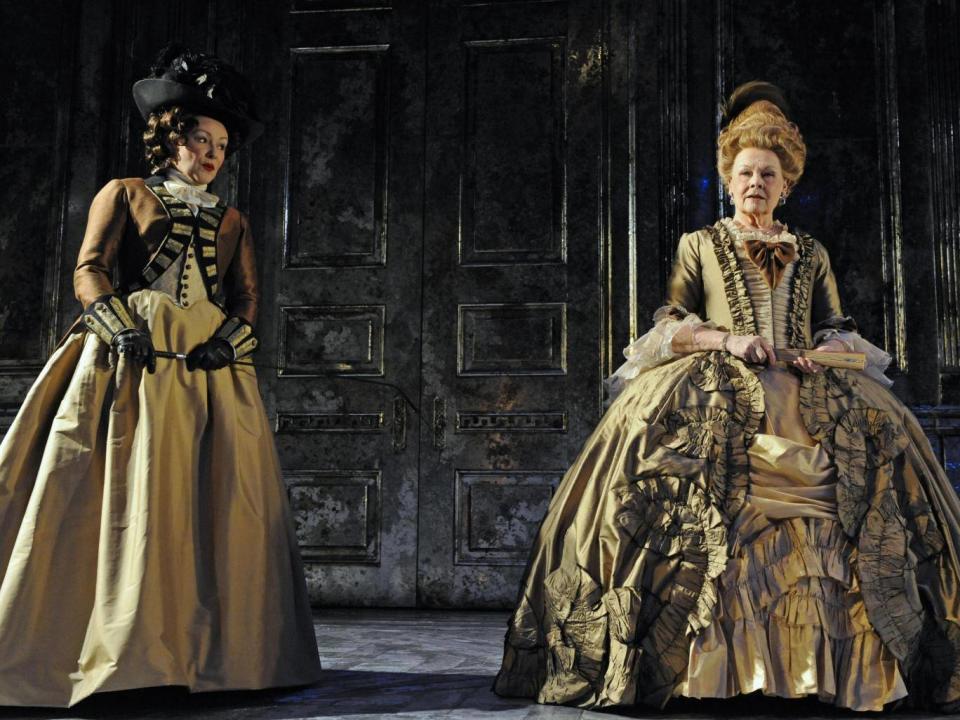The sweetest revenge: A history of artists taking on their critics

Hell hath no fury like an artist scorned. Particularly the thin-skinned variety with a pound or two to spend in retaliation.
Earlier this month the classical music critic Richard Morrison of The Times gave a poor review to TriOperas, a show put together by musician and composer Pamela Tan-Nicholson
To the astonishment of his newspaper, Ms Tan-Nicholson – mother of celebrated virtuoso violinist Vanessa-Mae – responded by taking out a full page advert in The Times as an open letter to Mr Morrison, attempting to put him right on the finer points of classical opera and explain why, in her view, he had misunderstood what she was trying to achieve in the performance.
Phone or write in to a paper, and you might well get politely fobbed off. But these are hard times (no pun intended) and no media outlet will turn down a paid-for ad, bringing in a good £16,000 worth of revenue, even if the ad is slagging off one of the paper’s most senior and respected critics.

And she pulled no punches. She knew, she said, that the performance would not be Mr Morrison’s “dainty cup of tea”. But his review, she went on, “demonstrates a terrifying bigotry directed against anyone who enjoys, or offers, popular musical entertainment. Cultural elitism is every bit as unedifying as racism, sectarianism, sexism.”
Many an artist will, of course, have taken their hat off to Ms Tan-Nicholson and wish they had had the brass nerve – and the cash – to hit back after a bad review.
But, in fact, Vanessa’s mother is not the first to take extreme action. That honour probably goes to the actor Stephen Berkoff, who threatened to kill a Guardian theatre critic, Nicholas de Jongh, after a piece of trenchant criticism. Mr Berkoff has since said that the threat was in jest, adding: “I just did it to turn him on.”
Perhaps. But The Guardian took it seriously enough at the time to offer its critic police protection.
Even national treasures are not exempt from poor reviews. Nor are they exempt from reacting to them. Dame Judi Dench received a stinker from The Daily Telegraph’s Charles Spencer for her role in the play Madame de Sade.
He described her performance as “sour and cross” and suggested that it had been delivered in “formidable old-boot mode”. The Dame sent the critic a postcard saying: “I’ve always rather admired you but now realise you are an absolute shit.”
And referring to a stage accident which made her miss a few performances, she added: “I’m only sorry I didn’t get a chance to kick you when I fell over – maybe next time.”
Sending a postcard would not have been sufficient for the acclaimed author Jeanette Winterson. She responded to a bad review of one of her books by literally turning up on the doorstep of the reviewer to give him a piece of her mind.

She recalled later that she had “that squaring-up tendency. And he was a little fella, only 5ft 2in.” In fact, Winterson did it more than once. Her fellow writer and critic Nicci Gerrard was another who found Winterson on her doorstep after offending the novelist.
It’s not really necessary to leave one’s house and visit the offending critic, though. Alain de Botton simply makes use of his computer.
After a bad review by Caleb Rain in The New York Times, de Botton posted underneath the critic’s blog: “I will hate you ’til the day I die and wish you nothing but ill will in every career move you make. I will be watching with interest and schadenfreude.”
There are classier ways of responding to impudent critics, and Maureen Lipman had a classy rebuttal when a critic questioned whether she should be playing the role of sexy mistress Desiree Armfeldt in a West End production of Stephen Sondheim’s A Little Night Music.
The critic in question wrote: “That most angular of actresses Maureen Lipman still strikes me as a wildly unlikely grande horizontale who is supposed to have slept her way round most of the royal families of Europe.”
Ms Lipman responded by sending the critic images of some unconventionally handsome loves of kings and princes, including Wallis Simpson and the Duchess of Cornwall.
You could argue that it’s classy too to make the critic part of your art and exact revenge that way. That is precisely what Jurassic Park author Michael Crichton did, with no holds barred.
When he was criticised by a journalist called Michael Crowley in The New Republic, Crichton introduced a character in his next novel called Mick Crowley, a political writer who attended Yale, both things true of Michael Crowley, as it happened.
Mick Crowley, though, was also described in the novel as having a small manhood, and was on trial for raping his sister’s two-year-old son after “experiencing an overwhelming urge to have anal sex” with him.
To make sure that no one would be in any doubt of Crichton’s true feelings, he also referred to the fictional character as a “dickhead”, a “weasel” as well as “that political reporter who likes little boys”.
As artistic revenge goes, that was quite a memorable effort.
Revenge can occur even after death. The artist RB Kitaj had a tough time with critics and was described by the London Evening Standard’s reviewer Brian Sewell as “unworthy of a footnote in the history of figurative art”.
Kitaj died in 2007, but in an unpublished memoir discovered some time later and eventually published in 2017, he called his critics “no talents” and “the living dead”, writing forcefully: “I accuse those who wrote violent personal attacks on me and my pictures of being inhumane reactionaries at best and, in some cases, sick men.

“The London Low Standard’s resident reviewer loves to say ‘the wretched Hockney and Kitaj’ as often as he can. This reviewer so despises his own warped nature that he perceives no virtue in anyone else. I accuse the living dead of envy in the first degree.”
What is perhaps not so wise a method of revenge is to take to the courts. The celebrated actor Charlotte Cornwell, half-sister of the spy novelist John le Carre, understandably did not like a review in the Sunday People in 1985.
Its TV critic Nina Myskow wrote none too delicately: “As a middle-aged star all Miss Cornwell has going for her is her age. She can’t sing, her bum is too big and she has the sort of stage presence that jams lavatories.
“Worst she belongs to that arrogant and deluded school of acting which believes that if you leave off your make-up (how brave, how real) and shout a lot, it’s great acting. It’s art. For a start, dear, you look just as ugly with make-up, so forget that. And as for art? In the short sharp words of the series, there is just one reply. It rhymes.”

Ms Cornwell felt the review damaged her reputation; the court ruled it was indeed malicious, but she was awarded the fairly meagre sum of £10,000 and, in the process, achieved the dubious distinction of being thousands of pounds out of pocket on her legal costs and having millions more people than would have read the original review discussing her bum.
But by far the best response, particularly from members of a profession who always profess disingenuously not to read reviews, is probably not to respond at all. When I once asked Dame Helen Mirren how she felt about the bad reviews she was receiving for a play at the time, she told me simply: “I am strong in adversity.”
Actors, writers, musicians and artists might do better, when their work is criticised, to repeat that line to themselves. Even when page 16 of The Times is an alluring alternative.
David Lister is the former arts editor of The Independent

 Yahoo News
Yahoo News 